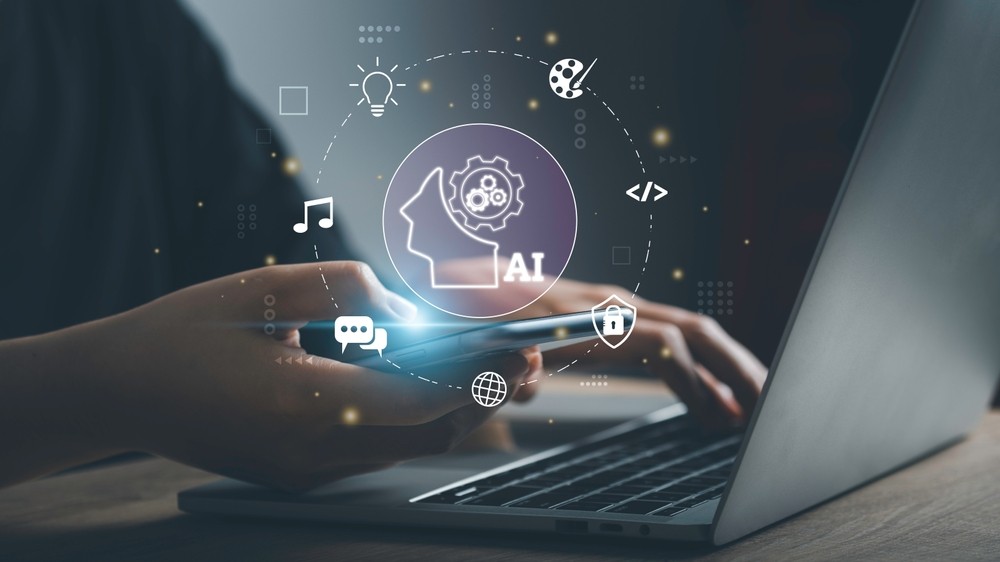A new Lenovo global survey of 600 IT leaders reveals that while 79% of respondents believe AI will allow employees to focus on more impactful work, less than half feel their current digital workplace solutions adequately support productivity, engagement, and innovation. Only 36% believe their systems support employee engagement “very effectively” -- while a staggering 89% say organizations must first overhaul their digital workplace to fully unlock AI’s potential. Reinventing Workplace Productivity explores the opportunities and challenges that Generative AI presents for the future of work, highlighting the urgent need for digital workplace transformation to ensure its successful adoption.
Unlocking AI’s Potential for Greater Productivity and Engagement
The report highlights that Generative AI will be a game-changer for collaboration, creativity, and productivity, outlining several key areas where AI can positively impact organizations:
· Enhanced Collaboration: AI-powered tools such as virtual co-authoring and real-time translations break down barriers, enabling seamless teamwork across geographies and languages.
· Creative Empowerment: By automating repetitive tasks, AI frees employees to focus on more strategic and innovative work, driving creative problem-solving.
· Productivity Boosts: AI-driven insights streamline workflows, improve efficiency, and accelerate day-to-day operations.
Nearly half (49%) of IT leaders surveyed say that creating a productive and engaging employee experience (EX) is their top priority for the year ahead. This echoes IDC research commissioned and published by Lenovo last month – its global 2025 CIO Playbook, It’s Time for AI-nomics, found that improving employee productivity is this year’s top business priority.
Roadblocks: Personalization and Adoption Barriers
Despite the urgent need to transform the digital workplace around AI, several key challenges remain in its widespread adoption:
Personalization Gaps: While 63% of IT leaders surveyed agree that a highly personalized digital workplace is essential, a lack of configurable devices and applications remains a top barrier. This one-size-fits-all approach leaves employees underserved.
Support Automation: 61% of IT leaders acknowledge the need for AI-driven IT support automation, but many organizations still struggle to integrate these systems effectively.
Lenovo's Vision for an AI-Driven Future
Entering a new era of Gen AI-powered personalization, employees need to be able to think, create, and collaborate without disruption. Today’s digital workplace needs to provide hyper-personalized settings catering to the diversity of working styles, enabling companies to make the best use of their talent, while bolstering productivity. This is not just about devices and software, the IT support that employees rely on should also be tailored to their specific requirements and abilities. To fully leverage AI’s potential, Lenovo advocates embedding generative AI into core business operations as part of a broader digital workplace transformation strategy.
“Transforming your workplace is essential to using AI effectively. Simply automating existing workflows will only yield incremental benefits. AI changes the rules of productivity, but to realize its potential, IT leaders must work alongside their executive teams to rethink how AI can augment their organization’s value-creation levers and competitive differentiation,” said Rakshit Ghura, VP and General Manager of Digital Workplace Solutions, Lenovo. “AI must be seamlessly integrated into core operations, creating a personalized and efficient digital workplace that enhances the employee experience and drives long-term productivity.”
Core Recommendations
The report provides three recommendations for businesses looking to harness AI in the workplace:
Simplify and Personalize the Employee Experience: Tailor tools, workflows, and experiences to individual roles, ensuring maximum productivity and innovation.
Automate IT Processes: Use Gen AI to efficiently manage devices and meet diverse employee needs, freeing up resources for higher-value tasks.
Transform Workflows for Value Creation: Rethink existing workflows and processes to fully capitalize on Gen AI’s capabilities and drive innovation.







